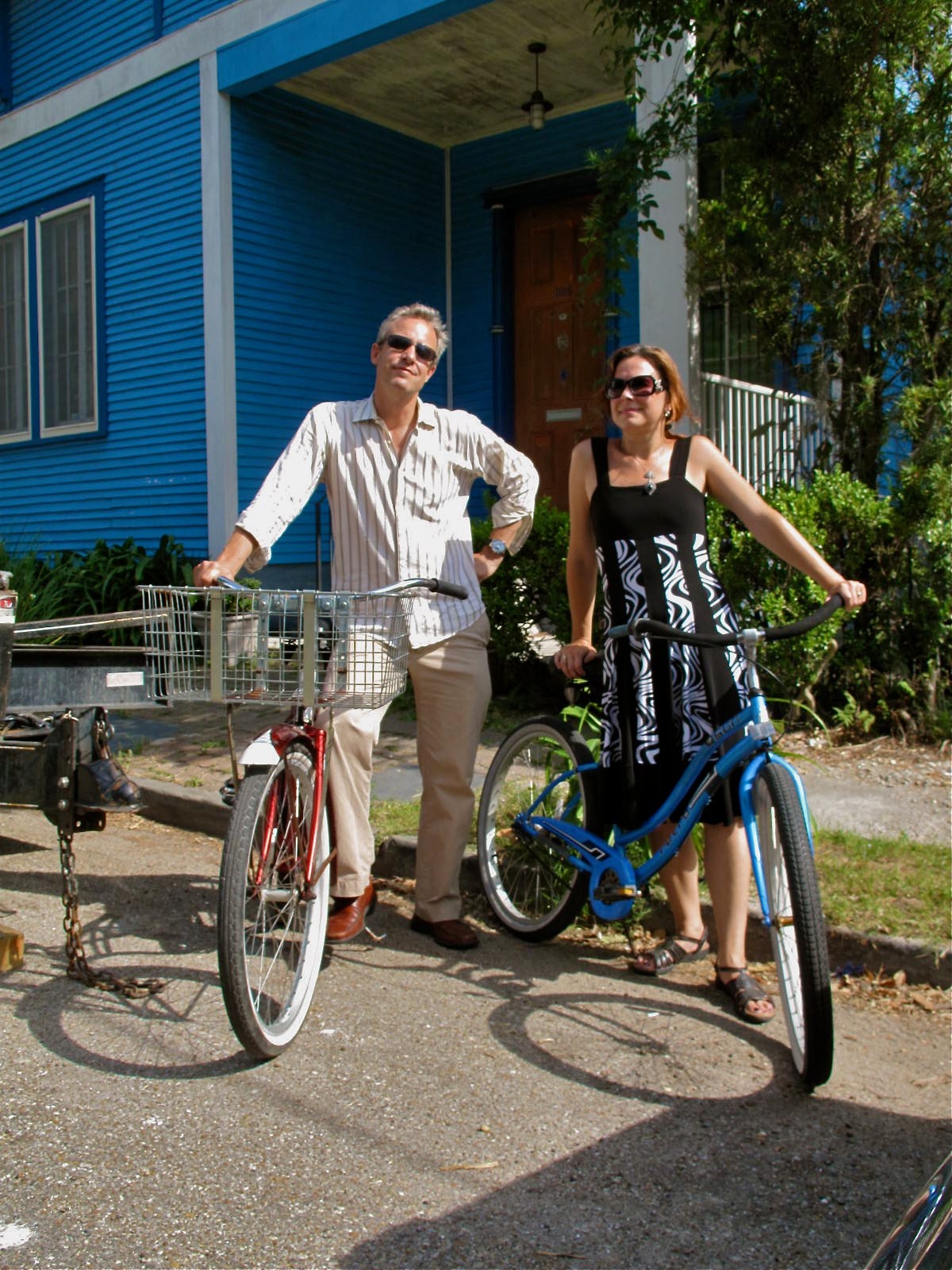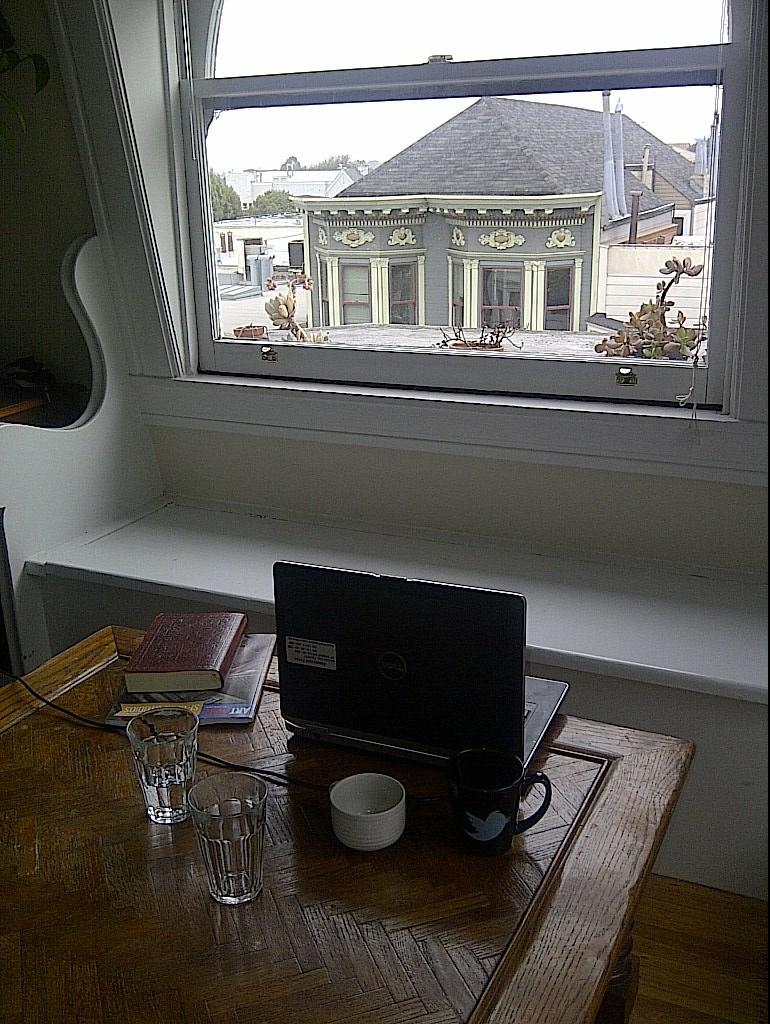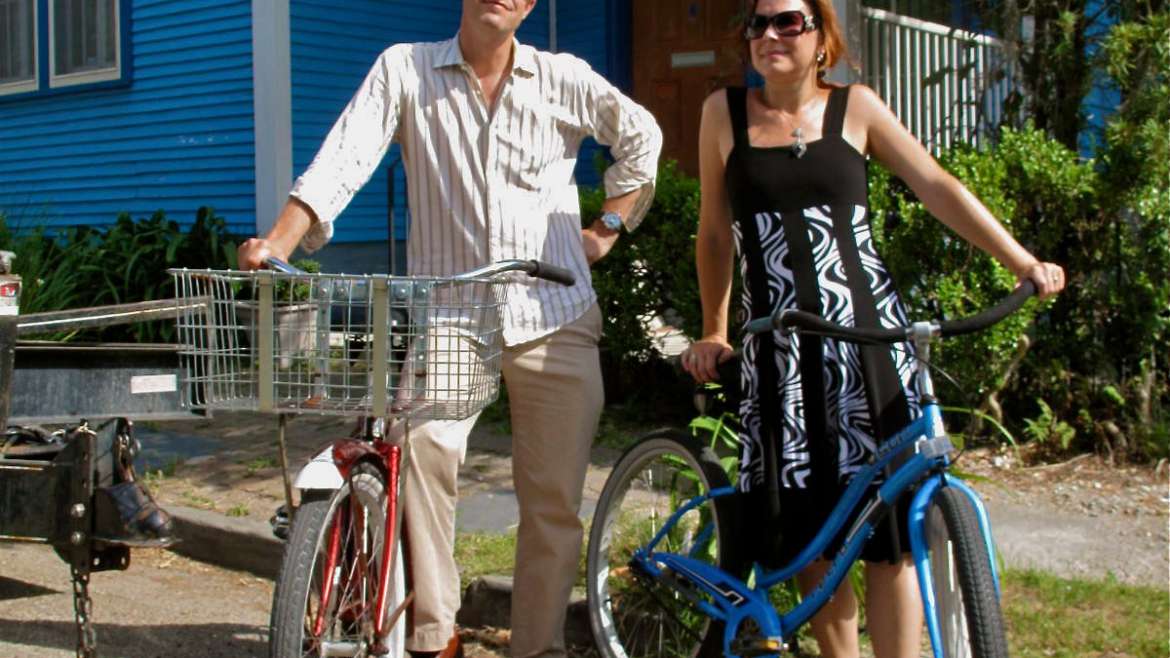
Back in 2011, John and I spent about two months living in New Orleans temporarily.
It was such an incredible, inspiring, life-changing experience that we went back for another month later that same year.
We’ve since taken several extended trips to New Orleans, as well as one in San Francisco. We also lived in New York for a month before ultimately moving.
Every time, friends ask, “How do you DO that?”
Having pulled it off it multiple times, the answer is, “It’s not as hard as you might think.”
And each time, it’s gotten a little easier because we basically know the drill.
Because so many people have asked how we’re able to pick up and live elsewhere for a few weeks, I’m starting work on an e-book answering that question.
My goal is to not only share what I’ve learned, but to interview others who have taken what I call manageable sabbaticals for their perspective on how to do it, as well as why they did it and what they learned.
What’s a manageable sabbatical?

In the traditional sense, when I think of a sabbatical, I think of a professor leaving his or her job for a semester or a year to go someplace far away and tackle a big project.
By contrast, my focus is trips that aren’t so involved, around three weeks to two months. Maybe you keep doing your same job.
That part about continuing to work drew passionate pushback from a few friends who believed doing their jobs from a different place was a change of scenery but not a sabbatical.
I feel strongly that the massive transformation I experienced living in other places, even as I continued to work remotely, merits calling them sabbaticals. These weren’t vacations but immersion in different lifestyles and cultures.
That said, their resistance has given me fodder for my research: What’s the difference between working remotely elsewhere and a sabbatical? Is it the way you approach the trip or something else?
What do you want to know about manageable sabbaticals?
Questions I’m exploring:
- What inspires someone to pick up and go someplace else temporarily?
- How do you choose the place? Is it a beloved location you want to connect with more or a new place you’re discovering? Is it for adventure or relaxation? Giving relocation a test drive?
- How is a trip with children different? How do they experience the change of locale and what do they need that’s unique?
- Did the experience change the way you live back home? Did you discover a new food or hobby that you continued after the trip ended?
- What would you do differently? What did you learn?
- Once you’ve done one long stay somewhere, do you do it again? In the same spot or try someplace new?
I’ve heard from numerous people, including friends and friends of friends, who have offered to share their experiences. I’m looking forward to kicking off interviews shortly.
I’d love to hear from you if you’ve taken a long trip or if you’ve wanted to but found it too daunting. I’d also love to hear what information would be helpful to you if you’re intrigued but haven’t yet made your travel plans.
Related blog posts:
- Living someplace else temporarily leads to discoveries in that new place and back home
- Making our own luck by being open to possibility
- Absence makes the heart grow fonder, or why I like to live someplace else for a while
- Goin’ to New Orleans: sinking in to a city we love
- New Orleans teaches me that Plan B might even be better
- My goal in New Orleans: soaking up creativity like a sponge


6 Comments
Alex Kourvo
I’m eager to learn more about this. Now that I’m an empty nester, I’m exploring writer’s retreats. I’m interested in the nuts-and-bolts of it all. How do you find a place to live? What happens to your house while you’re gone? How do you finance everything?
Looking forward to the book!
Colleen Newvine Tebeau
Absolutely! I started with the notion of a super practical nuts and bolts guide, almost a project management checklist of considerations … then began to expand out to more philosophical notions of why you should do this and how it might change you.
Things have gotten so much easier since we spent a month in NYC in 2005. John found several listings on Craigslist and went to see them in person to choose our location. Now AirBnB, with its numerous photos and previous visitor reviews, can help, along with house swap sites.
One advantage for us is that almost everyplace is cheaper than NYC. So if we sublet our apartment, then we rent someplace else that’s cheaper, the difference between our usual monthly housing cost and our temporary rent typically covers most of the airfare. So it has no effect on our monthly expenses.
Tim Ferriss taught me the phrase “geographic arbitrage” — if you live someplace with a lower cost of living but your revenue stays constant, you come out ahead.
Thanks for the input!
Lara Zielin
The Midwesterner in me needs to know how to get the permission slip signed. What do you say to your employer so that they allow you to work remotely for a spell? How do you give yourself permission to go for it? I wonder if you could put a permission slip in your book. I’m not even kidding! 🙂
Colleen Newvine Tebeau
I love that idea!
I am continually struck by people enthusiastically asking how we do these trips, then quickly, sometimes before I even answer the question, beginning to throw out their own reasons for why they could never do it. Those reasons typically sound to me like solvable logistics, but I think perhaps because they haven’t given themselves permission, they throw up these immovable objects that they believe prevent the possibility.
I was definitely thinking of pointers on talking to your boss, but I think giving yourself permission might even be the bigger challenge for some people.
Alex Kourvo
Yes! Oh my goodness. Just deciding to do it–and that you deserve to do it–is huge. I’m watching myself trying to justify a writer’s retreat and it’s excruciating. So many “shoulds” in my way…
Leave a reply